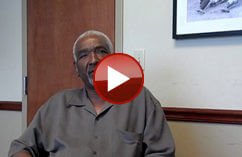Chattanooga Car Accident Statute of Limitations
If you have recently been injured in a serious collision, you may not be aware of the Chattanooga car accident statute of limitations and how this could affect your ability to bring about a claim for compensation. Know that a dedicated Chattanooga car wreck attorney can guide you through this process to ensure that you will meet the proper deadlines in order to file your case correctly. Read on to learn more about the Chattanooga car accident statute of limitations, as well as the ways that a professional Chattanooga car accident attorney can make a difference for you.
What Does the Chattanooga Car Accident Statute of Limitations Mean in an Injury Case?
In Chattanooga as well as all of Tennessee, the statute of limitations means that someone who is injured in a car wreck must file a lawsuit to continue to pursue a claim for injuries after a car wreck. Know that there are certain exceptions to statutes of limitation that apply to all situations. Generally, these are for individuals who are under the age of 18, individuals who have a mental issue that prevents them from pursuing their case, and other exceptions such as active military service. The statute of limitations is written in the Tennessee Code, so it is a law passed by the legislature and signed by the government. Individuals can find that in any law library as well as on the Internet. In Tennessee, there are two statutes of limitation that apply to car wreck lawsuits.
Limitation for Personal Injuries
The first and most important statute includes the limitation for personal injuries, which is one year. That means that an individual who has been injured in a car wreck must bring a lawsuit within one year from the date of the wreck to pursue that claim. If they have not settled their case within one year, they must file a lawsuit within that year or they are prohibited from recovering any money for that lawsuit by the statute of limitation.
Limitation for Property Damage
The second statute of limitation that applies in car accident cases is property damage. If someone is in a car wreck and their car is damaged in the wreck, they have three years within which to file a lawsuit to recover their property damage. If they file their lawsuit more than one year after the wreck, they cannot recover for medical bills, lost wages, pain, and emotional damages.
Exceptions to the Chattanooga Car Accident Statute of Limitations
In underage car wreck cases, the statute of limitations for personal injuries expires one year from the date a minor turns 18 years old. Their 19th birthday is the last day within which they can file a case that happened before their 18th birthday. The statute of limitations for car wrecks does not expire if it is a child who is less than one year old for over 18 years. This differs dramatically for those individuals. For most individuals with disabilities, the statute of limitations is the same as it is for everybody else. The exception involves those with a lack of mental capacity. That can include an individual who has some sort of psychological disorder, someone in a coma, an individual who is unconscious, or someone who is not able to see after their own affairs. Then their statute of limitation is also tolled by that disability.
What Happens if a Trial Goes Beyond the Statute of Limitations?
It is common for lawsuits to go past the statute of limitations and for trials to occur long after the statute of limitations. The key factor is that the lawsuit must begin before the statute of limitation expires. The way to prevent a statute of limitation from destroying one’s right to recover is by filing a lawsuit within one year of the wreck in Tennessee. The lawsuit can proceed for a number of years until trial. Then the statute of limitation has no effect because the lawsuit was filed before the statute expired.
If you have been seriously injured in a collision, reach out to a reliable Chattanooga car wreck attorney today to learn more about how the Chattanooga car accident statute of limitations could potentially affect your case.














